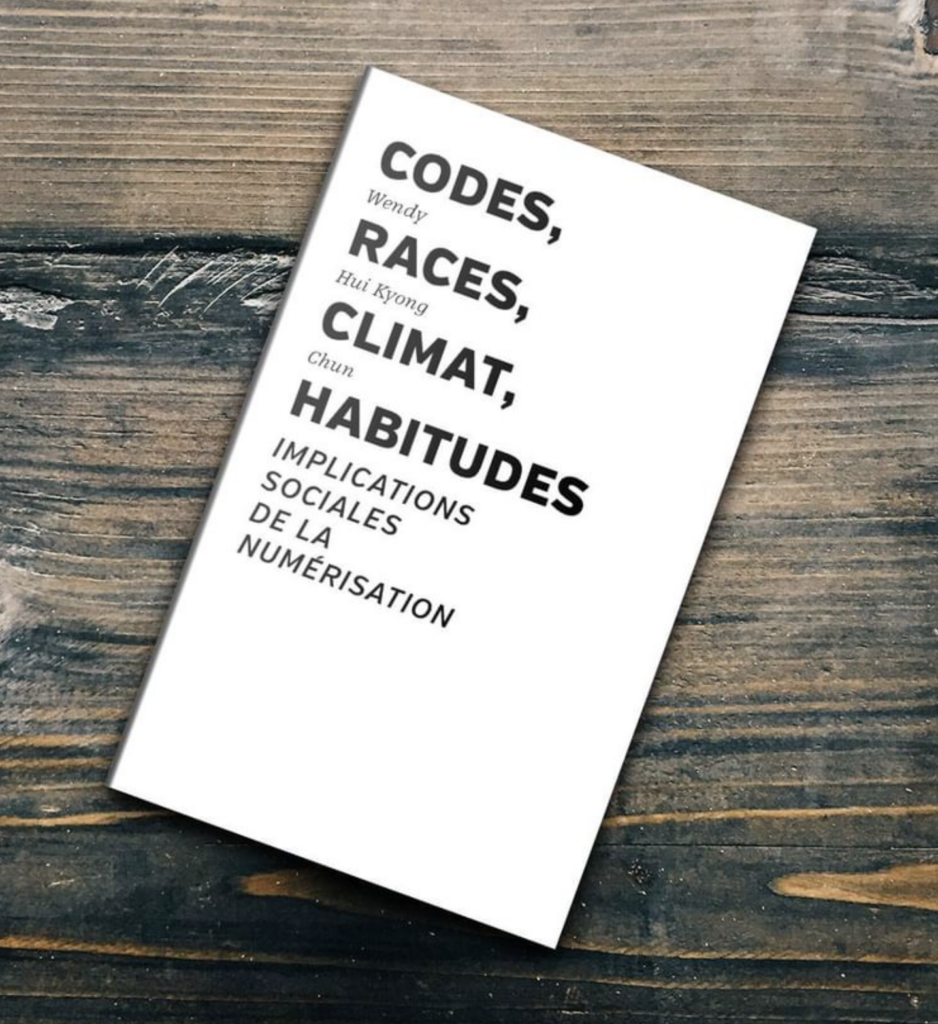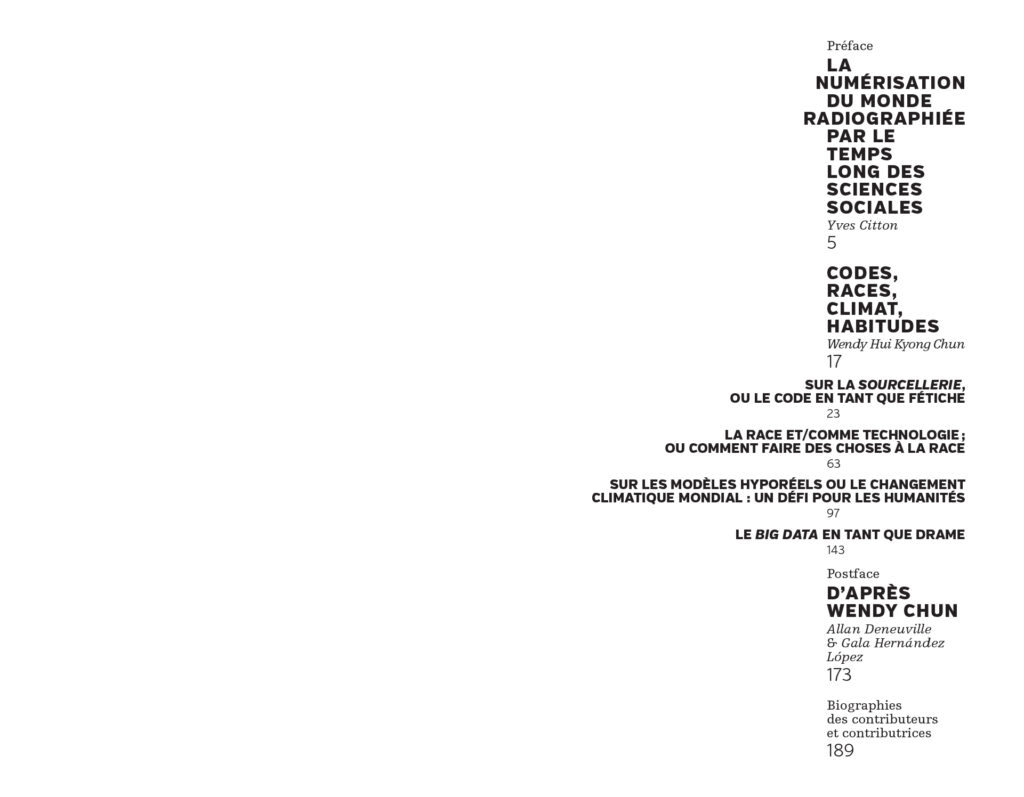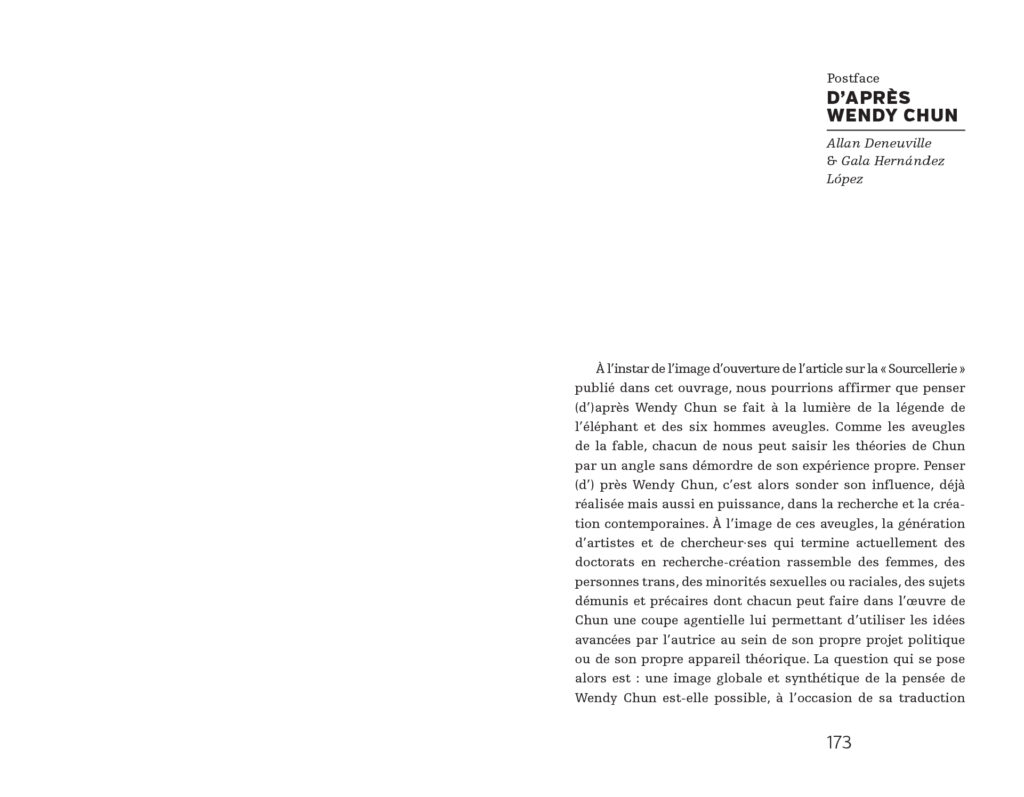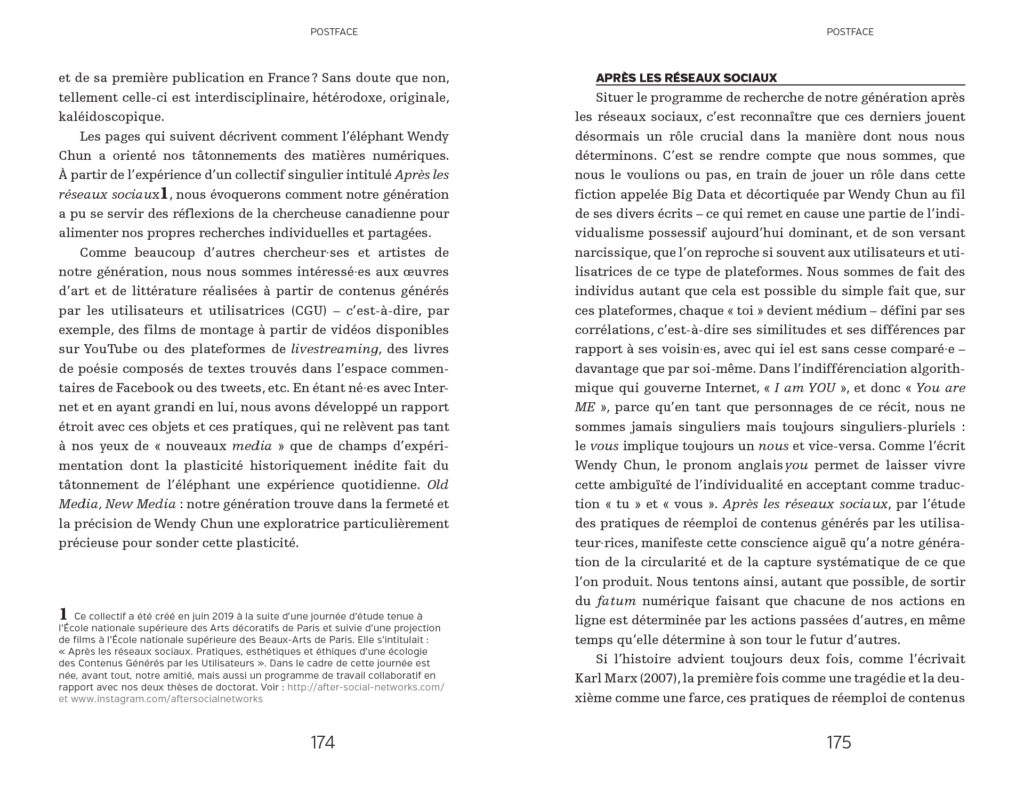After Wendy
« After Wendy », with Allan Deneuville,
postface to Codes, races, climat, habitudes. Implications sociales de la numérisation
by Wendy Hui Kyong Chun
edited by Yves Citton
& published by Les Presses du Réel, Petite collection ArTeC, Dijon, 2023.

New media theorist Wendy Hui Kyong Chun outlines her original conception of programming and code, warns of the racialization bias, homophily and eugenic tendencies that govern our interactions on platforms, and analyzes the need to summon the human and social sciences in the design of algorithmic models charged with predicting the evolutions and impacts of climate disruption.
Since the early 2000s, Wendy Hui Kyong Chun has published five books that have profoundly altered the way we conceive of software, platform socialities and the modes of subjectivation that emanate from them. Despite her international celebrity, this is the first book to introduce her work to French-speaking audiences. It includes analyses of code as witchcraft, racialization as technology, climate change as modeling and big data as dramaturgy. These central questions for our time are energized by the triple perspective characteristic of her research: an engineer who takes us inside the black boxes of computation; a historian of the social sciences sensitive to their colonial and patriarchal biases; and a political philosopher in direct touch with emancipation struggles.
After a preface providing an overview of Wendy Hui Kyong Chun’s work over the last twenty years, two chapters outline the originality of her conception of programming and code, analyzing various paradoxical dynamics: the more user-friendly an interface is, the more opaque it is rendered by the multiplication of layers needed to make it intuitive; the more we claim to be algorithmically attuned to “data”, the more we reproduce hidden discriminatory biases. The third chapter deals more specifically with certain racialization biases, the fourth with the genealogy of the notion of homophily, which currently organizes our interactions on platforms but which inherits from a eugenic conception of human populations, while the fifth chapter deals with the need to summon the human and social sciences in the design of algorithmic models charged with predicting the evolutions and impacts of climate disruption. An afterword builds on the content of these chapters to reflect on their relevance to contemporary French-speaking cultures.



